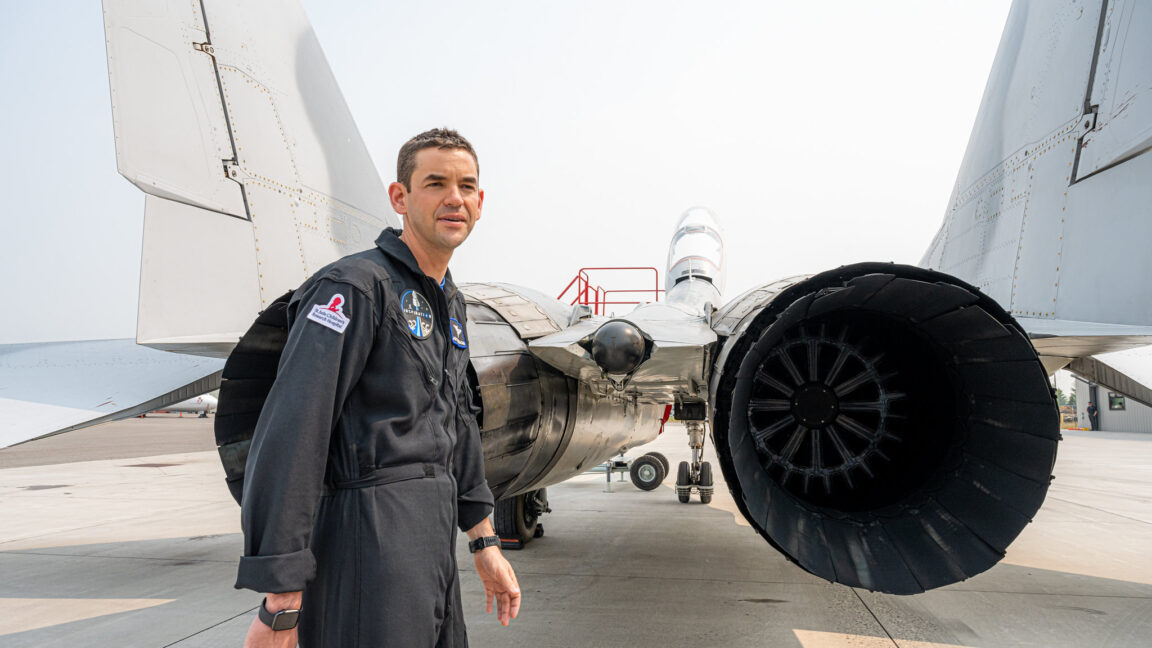Needs A Smart Administrator
After convincing senators he supports Artemis, Isaacman nomination advances
"I believe pursuing both lunar and Martian objectives is not inherently cost-prohibitive."
Eric Berger
–
Apr 30, 2025 12:32 pm
|
21
Jared Isaacman prepares for a flight in his MiG-29 fighter jet in August 2021.
Credit:
Inspiration4 / John Kraus
Jared Isaacman prepares for a flight in his MiG-29 fighter jet in August 2021.
Credit:
Inspiration4 / John Kraus
Text
settings
Story text
Size
Small
Standard
Large
Width
*
Standard
Wide
Links
Standard
Orange
* Subscribers only
Learn more
Minimize to nav
The US Senate Commerce Committee on Wednesday advanced the nomination of private astronaut and businessman Jared Isaacman as the next administrator of NASA to the Senate floor, setting up the final step before he is confirmed.
The vote was not unanimous, at 19–9, with all of the nay votes coming from senators on the Democratic side of the aisle.
However, some key Democrats voted in favor of Isaacman, including the ranking member of the committee, Maria Cantwell, D-Wash. Before the vote, Cantwell said she appreciated that a candidate like Isaacman, with his background in business and private spaceflight, could bring new ideas and energy to the space agency.
Committing to Artemis
Cantwell and the committee chair, Texas Republican Ted Cruz, both emphasized that their support for Isaacman was based on his public support for the Artemis Program to return humans to the Moon.
"A commitment to keeping on with the Moon mission is the key requirement we have to have in this position," Cantwell said. "While it's not clear to me where the Trump administration ultimately will end up on the NASA budget, and I have concerns about some of their proposed cuts today, Mr. Isaacman seems to be committed to the current plan. I think this is a very big competitive issue for the United States of America. That competitiveness is not just a goal; it's a reality that we may some day wake up and find ourselves falling behind."
This sets up what is likely to be one of the fundamental tensions of the next several years of US space policy. President Trump has expressed his interest in sending humans to Mars, a goal that Isaacman also supports. But key officeholders in Congress have told Isaacman they expect the administration to also beat China back to the Moon with American astronauts and to establish a sustainable presence there.
Can NASA do both?
Isaacman has sought to thread this needle by saying that both a lunar and Mars human program are possible, given that some of the hardware being developed for Artemis could be used for both.
He did so during a hearing on April 9 and also in response to written questions from US senators. Here is his response to a question from Cruz on whether NASA has adequate budgetary resources to accomplish all of this:
I believe pursuing both lunar and Martian objectives is not inherently cost-prohibitive nor expressly prohibited by existing federal statute should such efforts not detract from the near-term objective of returning to the Moon first. There is meaningful hardware commonality across the existing Artemis Human Landing System (HLS) providers. For instance, both contractors are already required to validate reusable heavy-lift launch capabilities—technologies essential for transporting mass beyond low Earth orbit, whether toward the Moon or Mars. In fact, many of the technologies and capabilities NASA is already investing in—such as surface nuclear power systems, nuclear electric propulsion, and nuclear thermal propulsion—are highly relevant for Mars exploration, though they remain underfunded and subscale.
Isaacman's responses to Republican and Democratic questions make for interesting reading and indicate someone who has thought at some length about the issues facing NASA as it grapples with the rise of China's space program and seeks to adopt a more purely commercial approach to buying space services. As part of his responses, Isaacman indicated support for various programs at NASA, including flying Artemis II and III with the current plan, the Commercial Lunar Payload Services program, the Nancy Grace Roman Space Telescope, and more.
The final step before confirmation is a full Senate vote. This could happen within a couple of days, or, more likely, it may take a couple of weeks.
Eric Berger
Senior Space Editor
Eric Berger
Senior Space Editor
Eric Berger is the senior space editor at Ars Technica, covering everything from astronomy to private space to NASA policy, and author of two books: Liftoff, about the rise of SpaceX; and Reentry, on the development of the Falcon 9 rocket and Dragon. A certified meteorologist, Eric lives in Houston.
21 Comments










